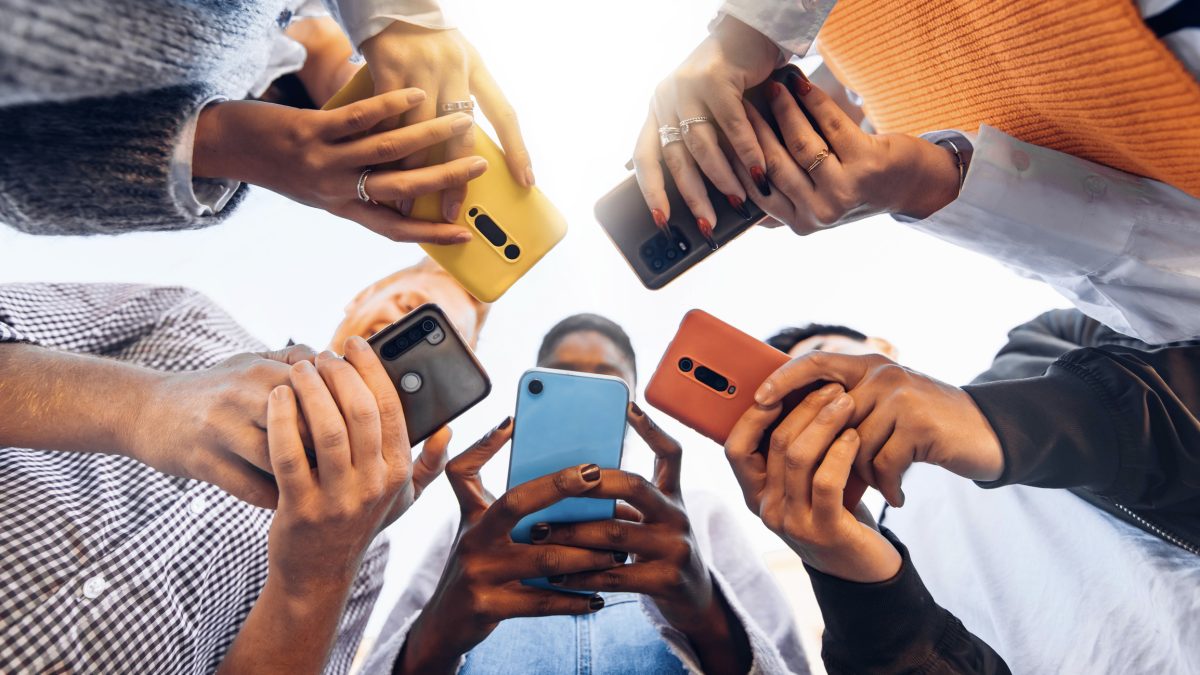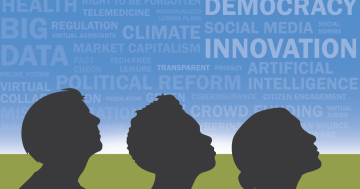
It’s time to question the need to be always connected. Photo: File.
Chris Bailey worries that our addiction to digital devices is cutting us off from the important relationships we need to prosper in the physical world.
Dining alone at a sushi restaurant recently, I found myself people-watching and noticing a phenomenon often written about.
Scores of couples, friends and families were sitting across from one another, their heads down and focused on their phones. Instead of being present in the physical world, they were scrolling through their digital ones.
I pondered this sad state of humanity. Why can’t people disconnect from the internet? How did we become so addicted to our devices? Are smartphones the new cigarettes?
Author F Scott Fitzgerald once said: “The test of a first-rate intelligence is the ability to hold two opposed ideas in mind at the same time and still retain the ability to function.”
By this measure, many of us are practising a brilliant sort of digital doublethink. We contemplate how terrible it is that people only connect digitally – while catching up on email on our phones.
I observe these conflicting thoughts in myself and, like many others, have begun questioning what balance I should strike between my analogue and digital lives – and how exactly I can do that.
Here are a few general tactics I’ve created for balancing both worlds.
Know the tasks that fall into both your digital and analogue worlds.
Some tasks are analogue-only: exercising, making love, and eating a burrito bowl are just three examples. Likewise, there are digital-only activities, like email, social media, and listening to podcasts.
Then there are the tasks we can do in both spaces, like reading, shopping, banking, checking the weather, and catching up on the news.
So how do you choose when to experience these tasks? Here’s a rule I’ve started living by: If you need to do a task efficiently, do it in the digital world. If you want a task to be more meaningful, do it in the analogue world.
This is why I read hard-copy books, subscribe to a physical newspaper, and play mostly analogue (board) games. For me, managing money, working out travel plans, and writing articles and books are best done in the digital world.
Reflect on why you’re entering your digital world.
There is a big difference between entering the digital world with a purpose versus entering it to escape from the analogue world. The next time you reach for your smartphone, ask: What exactly am I trying to accomplish in this digital realm?
If you primarily enter the digital world to accomplish something specific, like messaging your spouse to say you’ll be home late from work, you’re in good shape. On the other hand, if you’re looking to escape an awkward conversation or situation, learn to recognise and accept that feeling of discomfort.
Instead of reaching for your phone when a conversation dies, simply be with the other person instead of trying to escape to a more comfortable digital world.
Understand how digital tools can add value to your life. The most powerful digital tools are often the ones that help us function in the
analogue world. Here are three main ways they do this.
First, the digital world can add features to our analogue world. Uber allows us the ability to summon a car on demand; Goodreads helps us discover new books; devices like the Apple Watch can prod us to be more active throughout the day.
Second, digital tools can save us time, like when we use TripAdvisor to find a great restaurant, do online banking, or write an article on the computer rather than by hand.
Third, the digital world can connect us. Meetup lets you join new social circles when you move to a city, just as Craigslist helps you find out what’s going on in your community.
Mind your digital impulses.
There are many services designed to be as addictive as possible and cater to our desire for novelty, pleasure, and social approval. Mind these digital impulses – and try decluttering your digital life if you find them hard to tame.
You may be surprised by how much time you free up. Make sure your digital declutter lasts at least eight days – that’s about the amount of time it takes our mind to settle into a lower level of stimulation.
Rid yourself of internet guilt.
Once you’ve adopted these tactics, the chances are what’s left in your digital world really does add value to your life. You shouldn’t feel bad as you enter into it, especially if you’re not escaping an awkward situation, and if you’re having fun in that digital space.
One way to glean more enjoyment from your time on the internet is to surf the web with intention. This may sound like a peculiar idea, but it works.
Make a list of everything you’ll check before you sit in front of your laptop. The list can be as long or as short as you want. This may seem overly structured, but you’ll enjoy that time more. Intention drives away guilt better than almost anything else.
I don’t think it’s realistic or productive to give up the wonders or the powers of the digital world. It connects us and, when used thoughtfully, adds immense value to our lives.
Like it or not, we all occupy two worlds. Now it’s about tweaking how we use those spaces to get as much out of each as we possibly can.
Chris Bailey has written hundreds of articles on the subject of productivity, and is the author of two books: Hyperfocus, and The Productivity Project. He can be contacted at https://alifeofproductivity.com/author/chris/. This article first appeared on Chris’s website.











